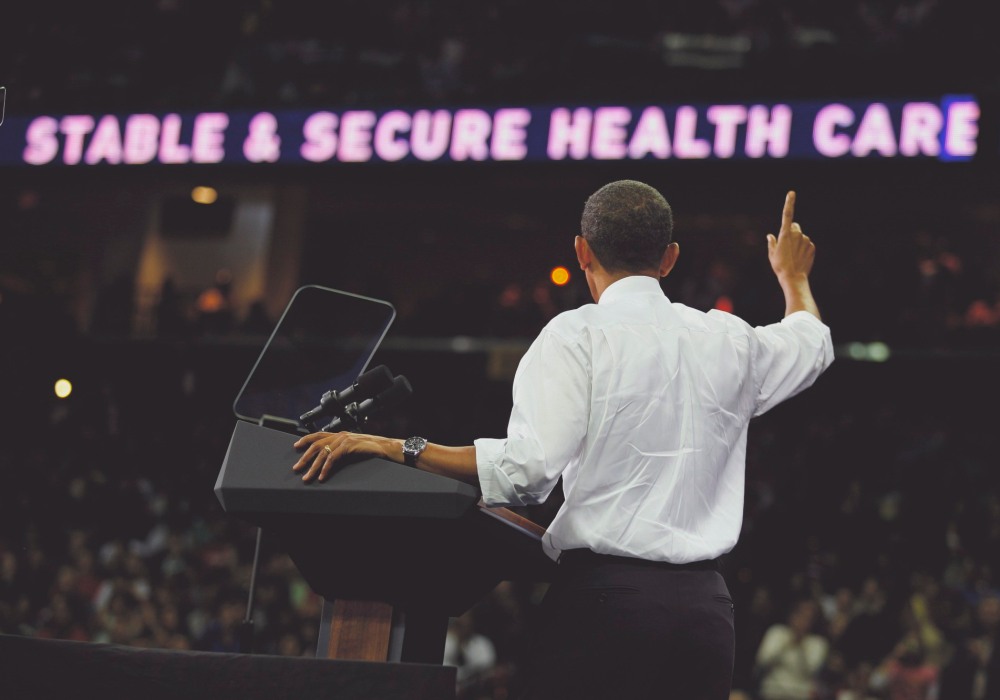
The Health Care Debate Continues
When President Barack Obama signed the Patient Protection and Affordable Care Act into law early in 2010, Democrats rejoiced for a movement toward, hopefully, better health care for Americans. Republicans, however, have voted to repeal the law more than 50 times since its origin.
The Patient Protection and Affordable Care Act, informally known as Obamacare, does not give U.S. residents free health care but rather works toward an insurance mandate. This, according to truecostblog.com, is when the government “mandates that all citizens purchase insurance” and restricts insurers from “rejecting sick individuals.”
But, many Americans argue that, instead of affordable health care, health care should be completely free.
Leah King, 29, of Hamburg, Pennsylvania, a freelance artist, is one of them. King is seven months pregnant and explained that, since Obamacare passed, insurance companies are required to cover her maternity costs.
In a recent informal survey, most college students leaned toward wanting free health care.
Jacob Joyce, 20, a Millersville University communications major, for example, believes that all Americans should have that right. “Why deny citizens of our own country care?” Joyce said.
Megan Cassleberry, 19, a Duquesne University nursing major, believes that citizens should have the right because health care is “insanely expensive.” But, Cassleberry also feels that there is a lot more that goes into the process to answer so simply.
“There’s so many parts to it,” she said, “and so many things that go into one doctor or hospital trip.”
King tried to assess what those many things are and the impact they have. “I think that the insurance companies are the reason why health costs are so high,” she said. “They jack up prices, and that trickles down to health services.”
“In my opinion, I think insurance companies are greedy and only in it for the money.”
Jon Miles, 58, of Lititz, Pennsylvania, is the president of Engle, Hambright and Davies, one of the largest insurance brokers in the United States. Miles disagrees with King.
“Everyone wants free health care,” Miles said, “but no one wants to pay for it.
Miles also worries that, if health care were to become free, the quality of care would diminish. “If you’re not paying for a lot,” he said, “then you’re going to get a lot of clinics that have some good doctors but also ones that aren’t the best in their field.”
Miles’ colleague Joseph Harriger, also of Lititz, disagrees with the idea of free health care, as well. “I think that there are circumstances where health care needs to be provided to those in need,” Harriger said. “People that could be disabled or are not able to contribute through employment, (or) if somebody falls under some tough times, there should be discounts so they can afford it.”
There are 16 countries outside of the United States that have single-payer health insurance, which is when “the government provides insurance for all residents (or citizens) and pays all health care expenses except for copays and coinsurance,” according to truecostblog.com.
While many people believe that free health care sounds like a great idea, they also see potential downsides to the law.
“Of course, everyone should have medical access,” Shannon Coveleski, 19, a University of Pittsburgh business marketing student, said, “but, in practice, there are too many problems with free-riding and taking advantage of the system.”
Harriger feels similarly. “I think, sometimes, good intentions go bad,” he said.
Alyson Urban, 38, a physical therapist assistant from Hershey, Pennsylvania, has a mixed opinion. “I believe that all minors, veterans and disabled citizens should get free health care,” Urban said. “However, I have issues with those who have been on welfare for endless amounts of time. I believe the system is abused by too many, and there should be better solutions put in place to avoid that.”
Miles cautions that “free” can be a misleading term. “There is nothing that is free,” he said. “Someone has to pay for it. The government would pay for it, but the taxpayers pay the government.”